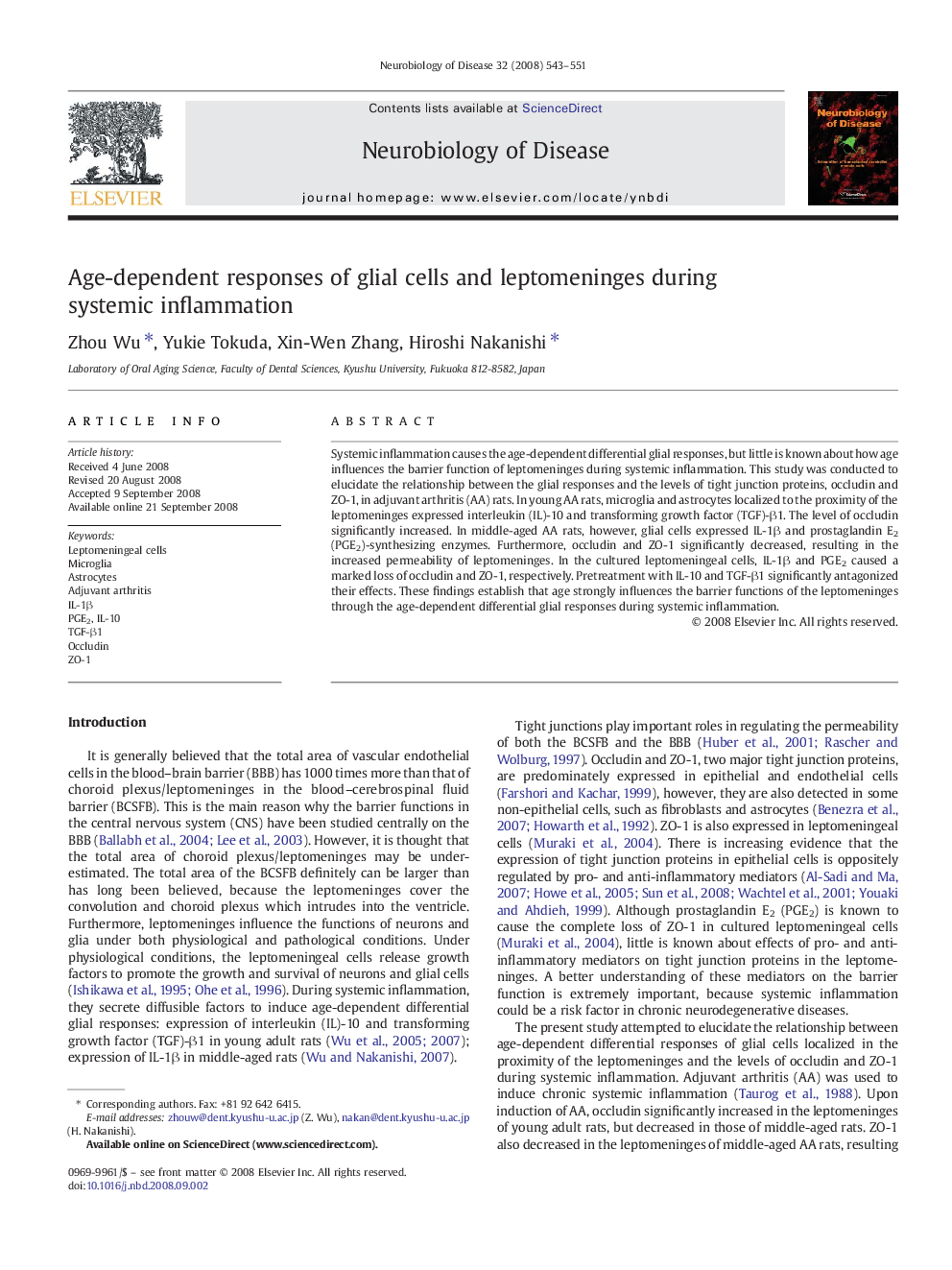| Article ID | Journal | Published Year | Pages | File Type |
|---|---|---|---|---|
| 3070263 | Neurobiology of Disease | 2008 | 9 Pages |
Systemic inflammation causes the age-dependent differential glial responses, but little is known about how age influences the barrier function of leptomeninges during systemic inflammation. This study was conducted to elucidate the relationship between the glial responses and the levels of tight junction proteins, occludin and ZO-1, in adjuvant arthritis (AA) rats. In young AA rats, microglia and astrocytes localized to the proximity of the leptomeninges expressed interleukin (IL)-10 and transforming growth factor (TGF)-β1. The level of occludin significantly increased. In middle-aged AA rats, however, glial cells expressed IL-1β and prostaglandin E2 (PGE2)-synthesizing enzymes. Furthermore, occludin and ZO-1 significantly decreased, resulting in the increased permeability of leptomeninges. In the cultured leptomeningeal cells, IL-1β and PGE2 caused a marked loss of occludin and ZO-1, respectively. Pretreatment with IL-10 and TGF-β1 significantly antagonized their effects. These findings establish that age strongly influences the barrier functions of the leptomeninges through the age-dependent differential glial responses during systemic inflammation.
